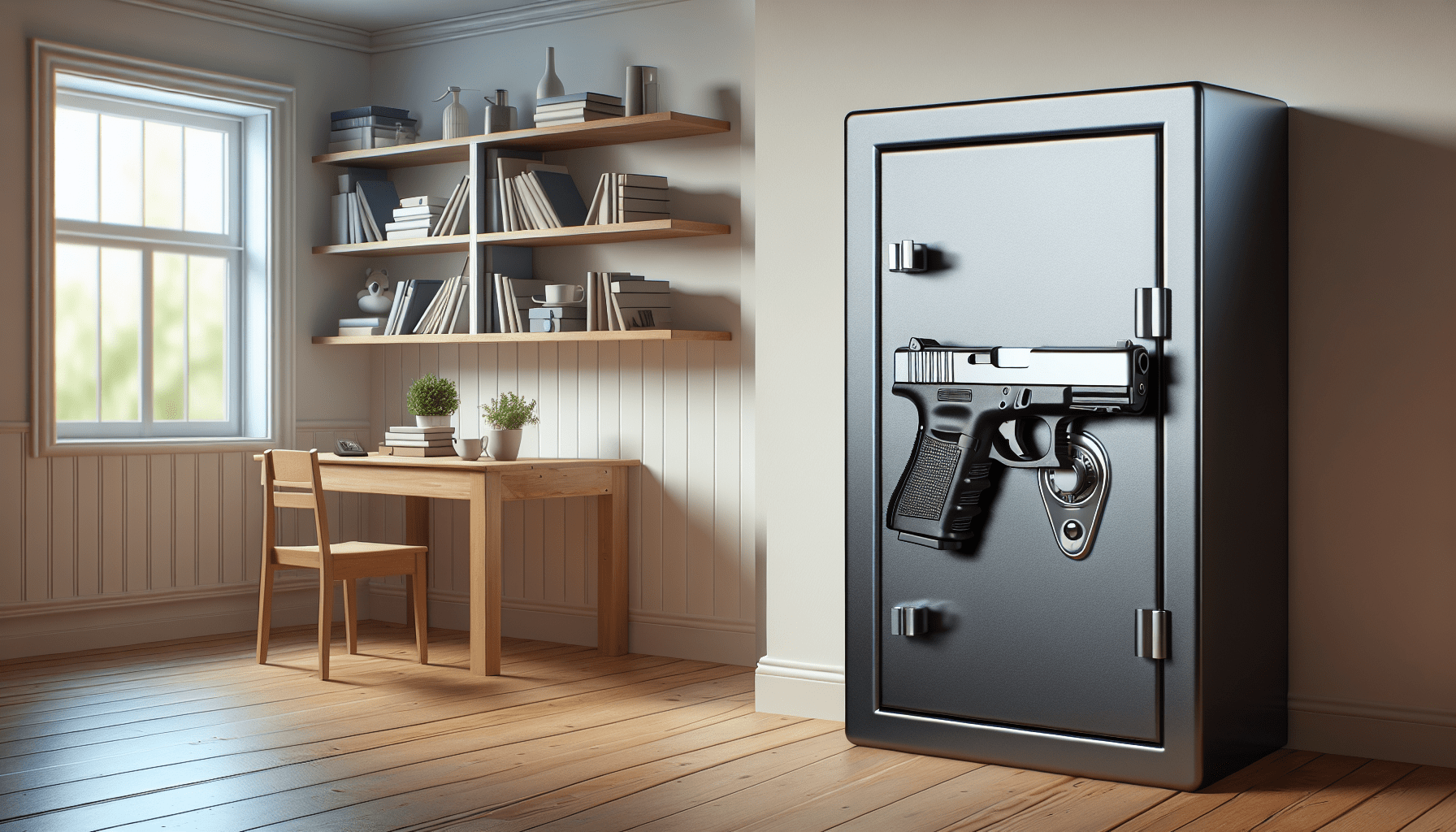Have you ever had that almost inevitable moment where your child, wide-eyed and curious, asks you about guns? As a parent, it’s normal to feel a bit uneasy about tackling the subject of firearms. Teaching kids about guns is a delicate balance that requires a thoughtful approach and ongoing conversation. So, how do you start this important discussion in a way that is both informative and appropriate for their age?
Why It’s Important to Teach Kids About Guns
Understanding why it’s important to educate your children about firearms is the foundation of these conversations. Ignorance and curiosity can lead to dangerous situations, so arming your kids with knowledge is crucial. When children understand the reality and responsibility that come with handling guns, they are better prepared to make safe choices.
Building Awareness
Creating awareness involves explaining the basics of what a gun is and what it can do. It’s essential that your child understands that guns are not toys. By informing them early on, you tend to demystify the subject and curb any unhealthy curiosity they might have.
Responsibility and Respect
Teach them that owning or handling a firearm comes with a heap of responsibilities. This is not just another tool; it’s an instrument that demands respect. When kids understand the gravity of handling guns, they are more likely to approach the topic with the caution it deserves.
Age-Appropriate Conversations
The way you discuss guns with a five-year-old is vastly different from how you would speak to a teenager. Tailoring your conversation to be age-appropriate ensures that your child understands the importance without feeling overwhelmed or unnecessarily scared.
For Young Children (Ages 4-7)
At this age, keep things simple. Explain that guns can be very dangerous and should never be touched if found. Teach them to:
- Stop
- Don’t Touch
- Run Away
- Tell an Adult
You can also use role-playing scenarios to help them remember these steps.
For Tweens (Ages 8-12)
Tweens are capable of understanding more and may have already come across guns in video games or television. Discuss the difference between real life and fiction. Be open to their questions and address any misconceptions they might have.
For Teenagers (Ages 13 and Up)
With teenagers, the conversation can go deeper. Discuss the laws related to firearms, the reasons people own them, and the importance of safe handling practices. If you own a gun, this could be the right time for a supervised, hands-on lesson at a controlled environment like a shooting range.

Setting Ground Rules
Establishing clear rules about guns in your household is essential for maintaining safety. If you own firearms, ensure they are stored unloaded, locked, and out of reach. When children know that guns in the house are off-limits, you minimize the risk of accidents.
Example of Household Gun Safety Rules
| Rule | Why It’s Important |
|---|---|
| Always treat a gun as if it is loaded | Prevents accidental discharge |
| Never point a gun at anything you don’t intend to shoot | Instills respect for the potential harm a gun can cause |
| Always keep your gun pointed in a safe direction | Minimizes the risk of injury |
| Store guns and ammunition separately | Adds an extra layer of safety |
Practical Hands-On Learning
Taking a trip to a reputable gun shop or shooting range can be an invaluable part of your child’s education about firearms. Green Line Arms, located at 1350 South Blue Angel Pkwy, Pensacola, Florida, offers a virtual shooting range and advanced training programs that cater to all levels. They promote responsible gun ownership and provide an opportunity for children and adults alike to learn about firearms in a controlled, safe environment.
Benefits of a Shooting Range Visit
- Realistic Simulation: Understanding the weight, feel, and operation of a firearm in a non-threatening way.
- Proper Handling Techniques: Learning how to properly load, unload, and safely handle a gun.
- Safe Environment: Supervised by trained professionals, offering peace of mind for parents.

Discussing Media and Peer Influence
In today’s world, kids are constantly exposed to firearms through various media sources and potentially, through their peers. It’s crucial to have an open dialogue about what they see and hear.
Media
Take the time to watch TV shows, movies, or video games that include firearms with your child. Discuss the portrayal of guns and how it compares to real-life situations. Make it a point to underscore the fictional nature of what they see.
Peers
Teach your child that they are responsible for their own actions and that peer pressure should never lead them to make unsafe choices. Encourage them to ask questions if they are unsure about something their friends say related to guns.
Using Real-Life Scenarios
Sometimes, the best lessons come from real-life scenarios. Use news stories or personal experiences to initiate discussions about gun safety and responsibility. For instance, if a local news story discusses a firearm accident or crime, use it as a teaching moment to reinforce the importance of the rules you’ve set at home.
Story-Driven Lessons
Say you hear about a child who found a gun at a friend’s house and brought it to school. Discuss with your child why this was a poor decision and what the correct course of action would have been. These stories can serve as potent reminders that safety is non-negotiable.
Handling Difficult Questions
Kids are likely to have many questions, some of which might be uncomfortable to address. Be patient and honest in your responses. If you don’t know an answer, it’s okay to admit that and suggest looking up reliable sources together. Approaching the conversation as a learning experience for both of you can make it less daunting.
Example Questions and Answers
-
Question: “Why do people own guns?”
Answer: “People own guns for various reasons, such as self-defense, hunting, or sport shooting. Some collectors find historical value in certain firearms.” -
Question: “What should I do if I see a gun at a friend’s house?”
Answer: “Follow the same rules we talked about: don’t touch it, leave the area, and tell an adult. You can also call me right away.”
Green Line Arms: A Resource for Parents
For those living in or near Pensacola, Florida, Green Line Arms is an excellent resource. Their mission to promote responsible gun ownership aligns with the values you aim to instill in your children. Their website, greenlinearms.com, offers a wealth of information on firearms and first responder medical tips. Whether you are new to firearms or an experienced shooter, their comprehensive training programs can guide you and your family.
Services Available at Green Line Arms
- Firearms and Ammunition Sales: Offering a wide range of products to suit your needs.
- Virtual Shooting Range: An innovative and safe way to learn proper gun handling.
- Training Programs: Catered to all experience levels, ensuring you and your kids get the education needed to handle firearms safely.
The Role of Ongoing Education
Teaching kids about guns isn’t a one-time conversation. It requires continuous education and reinforcement of the rules and principles you’ve established. Routine check-ins ensure that your child remembers safety guidelines and feels comfortable discussing any concerns or questions they might have.
Reiterating Safety
Regularly remind your kids of the basic safety rules. Consider refresher courses or additional training programs to keep the information current and top of mind. Consistent education fosters a culture of safety, reducing the likelihood of accidents.
Open Communication
Maintain an open line of communication. Let your child know they can always come to you with questions or uncertainties about guns. This openness fosters a trusting relationship and ensures they consult you first rather than making uninformed decisions.
Conclusion
Teaching your kids about guns is not about instilling fear but fostering a deep respect and understanding of their potential hazards and responsibilities. Through age-appropriate conversations, hands-on learning, and continuous education, you can equip your children with the knowledge they need to make safe decisions around firearms. Remember, it’s about building a foundation of trust and respect.
For further information, resources, and professional training, consider visiting Green Line Arms in Pensacola. Their experienced staff and advanced training programs provide an excellent platform for both beginners and seasoned enthusiasts.
By engaging in thoughtful dialogue and promoting responsible behavior, you’re taking significant steps towards ensuring the safety and well-being of your family.




